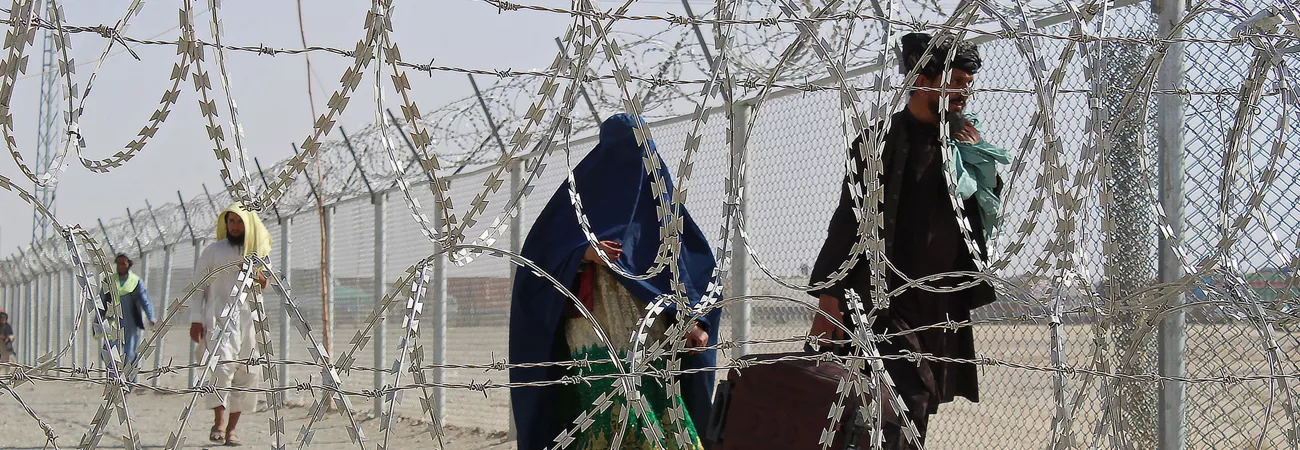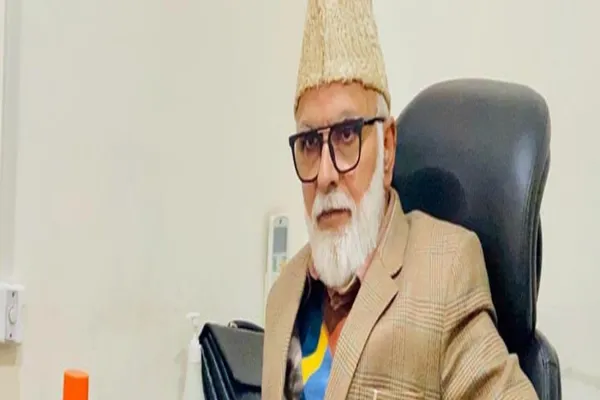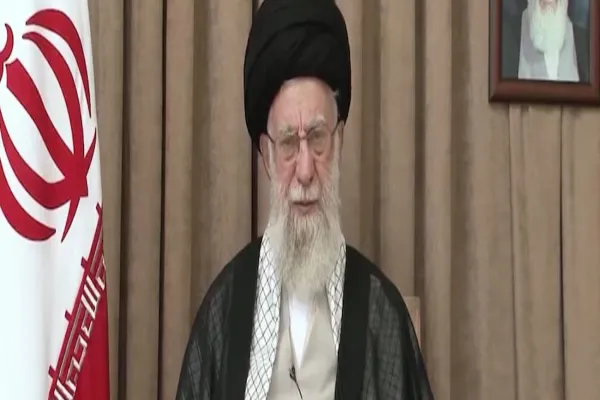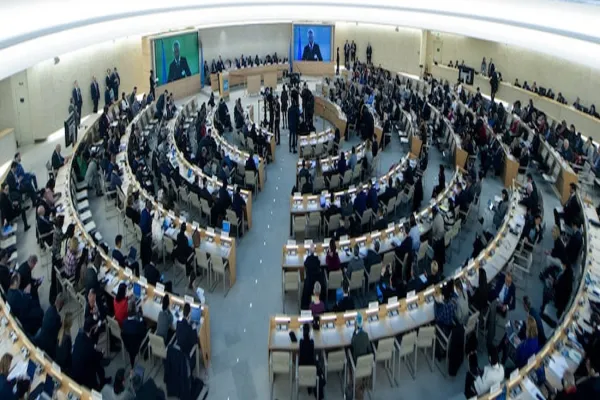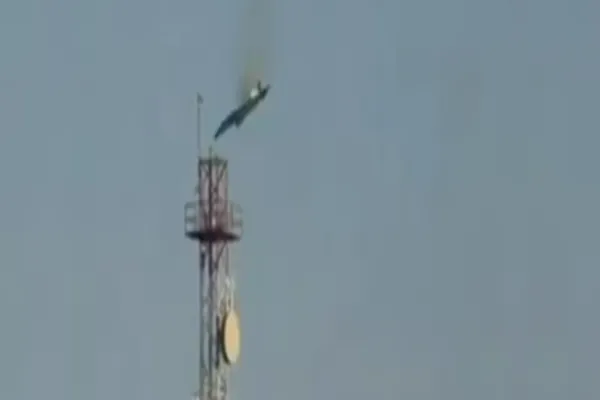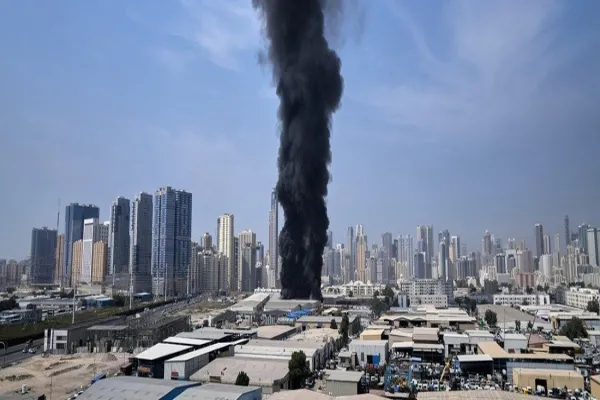i NEWS INTERNATIONAL
The United States has supported Pakistan’s plan to launch cross-border attacks in Afghanistan, saying the country has the right to defend itself against terrorism. Addressing a news briefing in Washington on Tuesday, State Department spokesman Ned Price has maintained that Pakistan has the right to defend itself from terrorism as the country has suffered tremendously from terrorist attacks.
He said “We’re aware of the recent statement by the Pakistani National Security Committee. The Pakistani people have suffered tremendously from terrorist attacks. Pakistan has a right to defend itself from terrorism.” The statement from the US comes a day after Islamabad threatened to target the Tehreek-e-Taliban Pakistan (TTP) militants in Afghanistan if Kabul does not take action to dismantle them.
The National Security Committee (NSC), under the chair of Prime Minister Shehbaz Sharif, had asked the government in Kabul not to provide safe havens to Pakistani terrorist groups on its soil. Pakistan has witnessed a sharp rise in terror incidents, especially in Khyber Pakhtunkhwa and Balochistan, and a suicide blast in Islamabad during the past couple of months after the TTP declared an end to the ceasefire with Pakistan.
Ned Price said the US called on the Taliban to uphold the very commitment they have made to see to it that Afghan soil is never again used as a launch-pad for international terrorist attacks. "These are among the very commitments that the Taliban have been unable or unwilling to fulfil to date," he said. The spokesman said that it has been repeatedly said that there will be a response from the United States. "The Taliban have made commitments to the international community. But more importantly, they have made commitments to the Afghan people. Those are the commitments we care most about.
Among the commitments, the Taliban have made but have repeatedly broken when it comes to their own people is an emphasis on human rights," he stressed. The State Department's spokesman continued, "As long as the Taliban are not able to fulfil these commitments, we will respond in a way that registers our strong condemnation while continuing to
support the Afghan people. And we’re going to be very careful not to do anything that could further imperil the humanitarian well-being of the Afghan people." Here are the excerpts of New Price’s new briefing about Pakistan and Afghanistan:
QUESTION: As you mentioned, unfortunately we didn’t celebrate New Year because of Afghan girl and Afghan women in Afghanistan. They are crying. Even if you watch the TV – now we are living in globalization, immediately we get news. Any update to bring or influence, as of course you guys have influences to Taliban? Any change? Because still the Taliban keep the commitment; they say this is Sharia law, they are not going to open the schools.
And number two, the second question: Pakistan announced that they are (going to) attack to Afghanistan because they said that Afghan Taliban encourage Pakistani Taliban to do something in their country. I don’t know if they attack in Afghanistan in this situation. It’s really crisis in Afghanistan.
MR PRICE: I don’t need to tell you now that we have seen repeated offenses on the part of the Afghan Taliban targeting the women, the girls, the people of Afghanistan repeatedly. Most recently it was on December 24th, on Christmas Eve, when the Taliban issued the edict barring humanitarian organizations from working with women, barring female employees of national and international nongovernmental organizations from the workplace. It was not lost on us that the Taliban announced this decision on
December 24th; they may well have calculated that the United States and our partners around the world, many of our partners around the world, would have been distracted by the Christmas holiday, perhaps would have been slow in responding. We wanted to be very clear and very swift in condemning this outrageous decision. It was that very day that Secretary Blinken, that Deputy Secretary Sherman, that Tom West, our special representative for
Afghanistan, that Rina Amiri, our special envoy for Afghan women and girls, that Karen Decker, the head of our Afghan Affairs Unit, and others very clearly used their voices to condemn this move. It was just a couple days later when the G7, along with a number of other countries, put out a statement noting our collective grave concern about this reckless and this dangerous edict barring women from working withnternational NGOs.
This decision puts at risk millions of Afghans who depend on humanitarian assistance for their very survival. We call on the Taliban to urgently reverse this harmful decision. We are monitoring the evolving situation very closely, the impacts that this edict has had and may potentially yet have, and we’re in constant contact with UN and NGO partners on the state of their operations in Afghanistan.
We know that women are central to humanitarian operations around the world. In Afghanistan in particular, only women have been able until now, at least, to reach some of the most vulnerable people inside Afghanistan. Women must work at NGOs. They must be in a position to do so, so that millions of Afghans can receive food, medicine, winterization materials, again for their very survival. They’re essential to the delivery of this assistance and to ensuring that other women, children, and other members of vulnerable group – vulnerable groups – excuse me – receive this assistance.
This ban is already significantly impeding humanitarian actors’ ability to deliver vital and lifesaving assistance to millions, and it’s actually forced some organizations to pause their operations. The Taliban continue to demonstrate their contempt for the welfare and the rights and freedoms of the Afghan people, particularly women and girls, and their disinterest in normal relations with the international community.
We are assessing the impact on this edict. We’re discussing options that will allow us to maintain a strong, principled position as the single largest donor of humanitarian assistance in Afghanistan while also doing what we can to prevent the humanitarian situation from deteriorating even further as a result of the difficult operating environment the Taliban have themselves created.
We are committed to helping to alleviate the suffering of the Afghan people, who are the victims of the Taliban’s own harmful policies, and we are looking at what specific consequences can be labeled – can be levied against the Taliban to register our condemnation – again, doing so in coordination with allies and partners.
QUESTION: And Taliban didn’t pay attention. Practically, what is the next action of the United State?
MR PRICE: Well –
QUESTION: Because Taliban say we didn’t see anything and do agreement. We didn’t see anything about human right. That’s why they didn’t pay attention. They say we follow sharia law. They never change ideology. Taliban is kind of ideology. What will be your next action, United State and Europe?
MR PRICE: We are discussing those very specific consequences both internally and with allies and partners. We have said repeatedly that there will be a response from the United States. We’re going to continue to coordinate closely. We’ll share additional details on that when we have.
To your – to the broader point of your question, the Taliban have made commitments to the international community. But more importantly, they have made commitments to the Afghan people. Those are the commitments we care most about. Among the commitments the Taliban have made but have repeatedly broken when it comes to their own people is an emphasis on human rights, is an emphasis on forming a government that represents the people of Afghanistan, and a number of other steps that the Taliban have been unable or unwilling to fulfill.
As long as the Taliban is not able to fulfill these commitments, we will respond in a way that registers our strong condemnation while continuing to support the Afghan people. And we’re going to be very careful not to do anything that could further imperil the humanitarian well-being of the Afghan people.
When it comes to your first question, or your second question, on Pakistan, we’re aware of the recent statement by the Pakistani National Security Committee. The Pakistani people have suffered tremendously from terrorist attacks. Pakistan has a right to defend itself from terrorism.
And meanwhile, we continue, just as I said a moment ago, to call on the Taliban to uphold the very commitment they have made to see to it that Afghan soil is never again used as a launchpad for international terrorist attacks. These are among the very commitments that the Taliban have been unable or unwilling to fulfill to date.
QUESTION: So but, Ned, it’s been since this – since December 24th it’s been 10 days, 11 days, right? So by your own calculation, isn’t it – the Taliban will look to be – look to have been correct that there wouldbe a slow international response if they announced this on Christmas eve. So there’s nothing other than these collective statements of grave concern has actually been done.
MR PRICE: Which, in fact, is itself important because it very clearly signals the response from the United States. Many of our partners responded in close succession shortly after we did. The G7 issued a statement on December 28th along with several other countries, and I can assure you that we have been having detailed discussions with our partners, with international NGOs.
QUESTION: But nothing has actually been done other than this – other than this – the statement? MR PRICE: There have been engagements on the part of the UN and Taliban officials as well. We want to make sure we understand the implications of this edict and how we can best respond to it if it is not in fact.
QUESTION: But —
MR PRICE: If it is not in fact overturned.
QUESTION: But the implications are that all these aid groups have pulled out.
MR PRICE: There are a number of aid groups. I believe there is a coalition of 11 NGOs who have had to suspend their operation – operations. But other NGOs continue to operate. We want to respond in a way that first and foremost protects the humanitarian interests of the Afghan people. That is what the Taliban is attempting to denigrate, attempting to attack. We want to make surethat in our response we register the strong condemnation that you’ve already heard for us – heard from us, while doing so in a way that doesn’t further imperil the humanitarian well-being of the Afghanpeople.
Credit : Independent News Pakistan-INP



